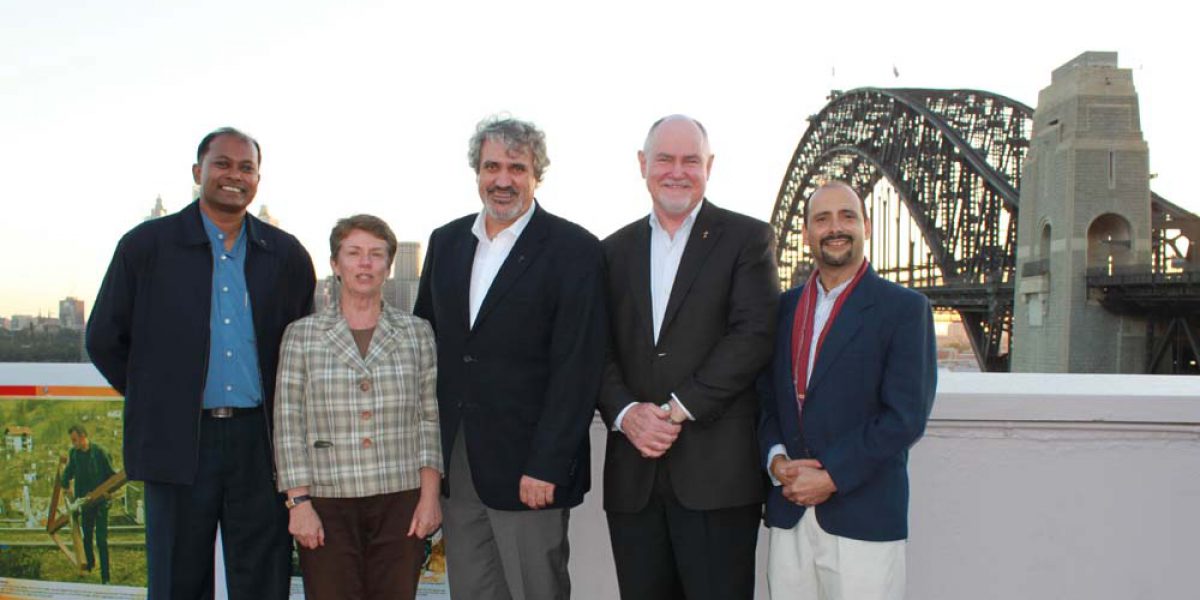Australia: The new ‘boat people’
12 January 2011|Catherine Marshall

Sydney, 12 January, 2011 – Visiting Sydney on the occasion of the 30th anniversary of JRS, Fr Balleis said that although Australia receives relatively small numbers of refugees, it is important that JRS Australia keeps their cause on the agenda, particularly on behalf of boat people.
“Something I’d like to say explicitly is that those people who risk their lives on these boats, they are the more desperate and poor. Asylum seekers don’t generally come by boat, they come through the airport. [Boat people] cannot get a plane ticket, cannot get a visa, they are desperate.”
Fr Balleis said it was inhumane for the media and public commentators to portray as the enemy the weakest and the poorest of people, those “who have no other option but to flee for their lives.”
“People are stateless in Burma, in Bangladesh – what hope do they have? Sri Lanka is a defeated population; I would probably leave also if I was a Tamil. We have to stand up for them, to be there and plead for their cause. Australia has a lot of space and has always been an immigration country. It’s had a much more open attitude and we can build on that. If you lose it, it will send a bad signal to others. You know even from the very first image that this country has always integrated people. So if you become closed, what can we say about [a country like] Germany which has much more of a monoculture?”
Speaking at an event held to commemorate the anniversary, Fr Balleis said JRS was facing a new set of challenges as it entered its fourth decade.
“Half of the refugee population now lives in urban areas. It’s more complex, more expensive to work with refugees in urban areas. [But] I would say we’re well equipped for that. We accompany people, so we go outside of our office – we don’t sit there and wait for people to come to us. We are also able to make use of local parish and school infrastructure. For example, in Nairobi the parish provides a room where we can have food distribution, where people can meet and feel protected. Church space is protected space.”
JRS is also finding ways to deal with the worldwide growth of xenophobia, the fluid boundaries between migrants and those recognised as refugees under the UN Convention, and the deep need for reconciliation between conflicted groups which might one day be forced to live together again.
“What we invest in the refugee now has a long term impact”, said Fr Balleis.
The event was also attended by the Director of JRS Asia-Pacific, Fr Bernard Arputhasamy, the Provincial of the Australian Jesuits, Fr Steve Curtin SJ, the Associate Director of JRS Australia, Sr Maryanne Loughry, and the Director of JRS Australia, Fr Sacha Bermudez-Goldman SJ.
“JRS had always hoped it wouldn’t be around for as long as it has, but that the ongoing displacement of people necessitated a strong commitment to accompaniment and advocacy on behalf of refugees”, said Fr Bermudez-Goldman.
Catherine Marshall


